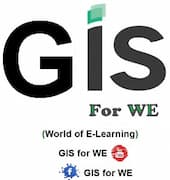Diffusion Interpolation with Barriers Tool in ArcToolbox
أداة انتشار الاستيفاء مع الحواجز
ArcMap ArcGIS
How to use Diffusion
Interpolation with Barriers Tool in ArcToolbox ArcMap ArcGIS??
كيفية استخدام أداة انتشار الاستيفاء مع الحواجز
في ArcToolbox ArcMap
ArcGIS ؟؟
Path
to access the toolمسار الوصول الى الأداة
:
Diffusion
Interpolation with Barriers Tool, Interpolation Toolset, Geostatistical Analyst
Tools Toolbox
Diffusion Interpolation with
Barriers
Interpolates a surface
using a kernel that is based upon the heat equation and allows one to use
raster and feature barriers to redefine distances between input points.
يقحم السطح باستخدام نواة تستند إلى معادلة
الحرارة وتسمح باستخدام حواجز البيانات النقطية والميزات لإعادة تعريف المسافات
بين نقاط الإدخال.
1. Input features ميزات الإدخال
The input point features
containing the z-values to be interpolated.
معالم نقطة الإدخال التي تحتوي على قيم z
المطلوب استكمالها.
2. Z value field حقل قيمة الإرتفاع
Field that holds a
height or magnitude value for each point. This can be a numeric field or the
Shape field if the input features contain z-values or m-values.
الحقل الذي يحتوي على قيمة ارتفاع أو مقدار لكل
نقطة. يمكن أن يكون هذا حقلاً رقميًا أو حقل الشكل إذا كانت ميزات الإدخال تحتوي
على قيم z أو قيم m.
3. Output geostatistical layer
(optional) طبقة
إحصائية الإخراج (اختياري)
The geostatistical layer
produced. This layer is required output only if no output raster is requested.
أنتجت الطبقة الجيوإحصائية. هذه الطبقة مطلوبة فقط
إذا لم يتم طلب الناتج النقطي.
4. Output raster (optional) النقطية الإخراج (اختياري)
The output raster. This
raster is required output only if no output geostatistical layer is requested.
النقطية الإخراج. هذه البيانات النقطية مطلوبة فقط
في حالة عدم طلب طبقة إحصائية جغرافية ناتجة.
5. Output cell size (optional) حجم خلية الإخراج (اختياري)
The cell size at which
the output raster will be created.
This value can be
explicitly set under Raster Analysis from the Environment Settings.
If not set, it is the
shorter of the width or the height of the extent of the input point features,
in the input spatial reference, divided by 250.
حجم الخلية التي سيتم إنشاء البيانات النقطية
للإخراج بها.
يمكن تعيين هذه القيمة بشكل صريح ضمن تحليل
البيانات النقطية من إعدادات البيئة.
إذا لم يتم تعيينه ، فهو أقصر عرض أو ارتفاع مدى
معالم نقطة الإدخال ، في الإسناد المكاني للإدخال ، مقسومًا على 250.
6. Input absolute barrier features
(optional) إدخال
ميزات الحاجز المطلق (اختياري)
Absolute barrier
features using non-Euclidean distances rather than line-of-sight distances.
ميزات الحاجز المطلق باستخدام مسافات غير إقليدية
بدلاً من مسافات خط البصر.
7. Bandwidth (optional) عرض النطاق الترددي (اختياري)
Used to specify the
maximum distance at which data points are used for prediction. With increasing
bandwidth, prediction bias increases and prediction variance decreases.
يستخدم لتحديد المسافة القصوى التي يتم عندها
استخدام نقاط البيانات للتنبؤ. مع زيادة عرض النطاق الترددي ، يزداد تحيز التنبؤ
ويقل تباين التنبؤ.
8. Number of iterations (optional) عدد التكرارات (اختياري)
The iteration count
controls the accuracy of the numerical solution because the model solves the
diffusion equation numerically. The larger this number, the more accurate the
predictions, yet the longer the processing time. The more complex the barrier's
geometry and the larger the bandwidth, the more iterations are required for
accurate predictions.
يتحكم عدد التكرار في دقة الحل العددي لأن النموذج
يحل معادلة الانتشار عدديًا. كلما زاد هذا الرقم ، زادت دقة التنبؤات ، ومع ذلك
زاد وقت المعالجة. كلما كانت هندسة الحاجز أكثر تعقيدًا وزاد عرض النطاق الترددي ،
زادت التكرارات المطلوبة للتنبؤات الدقيقة.
9. Weight field (optional) حقل الوزن (اختياري)
Used to emphasize an
observation. The larger the weight, the more impact it has on the prediction.
For coincident observations, assign the largest weight to the most reliable
measurement.
تستخدم للتأكيد على الملاحظة. كلما زاد الوزن ،
زاد تأثيره على التنبؤ. بالنسبة للملاحظات المتزامنة ، قم بتعيين الوزن الأكبر
للقياس الأكثر موثوقية.
10. Input additive barrier raster
(optional) نقطية حاجز
الإدخال (اختياري)
The travel distance from
one raster cell to the next based on this formula:
(average cost value in
the neighboring cells) x (distance between cell centers)
مسافة السفر من خلية نقطية إلى أخرى بناءً على هذه
الصيغة:
(متوسط قيمة التكلفة في
الخلايا المجاورة) x (المسافة بين مراكز
الخلايا)
11. Input cumulative barrier raster
(optional) إدخال
نقطية حاجز تراكمي (اختياري)
The travel distance from
one raster cell to the next based on this formula:
(difference between cost
values in the neighboring cells) + (distance between cell centers)
مسافة السفر من خلية نقطية إلى أخرى بناءً على هذه
الصيغة:
(الفرق بين قيم التكلفة
في الخلايا المجاورة) + (المسافة بين مراكز الخلايا)
12. Input flow barrier raster (optional) نقطية حاجز تدفق الإدخال (اختياري)
A flow barrier is used
when interpolating data with preferential direction of data variation, based on
this formula:
Indicator (cost values
in the to neighboring cell > cost values in the from neighboring cell) *
(cost values in the to neighboring cell - cost values in the from neighboring
cell) + (distance between cell centers),
where indicator(true) =
1 and indicator(false) = 0.
يتم استخدام حاجز التدفق عند استيفاء البيانات مع
الاتجاه التفضيلي لتغير البيانات ، بناءً على هذه الصيغة:
المؤشر (قيم التكلفة في الخلية المجاورة> قيم
التكلفة في الخلية المجاورة) * (قيم التكلفة في الخلية المجاورة - قيم التكلفة في
الخلية المجاورة) + (المسافة بين مراكز الخلايا) ،
حيث المؤشر (صواب) = 1 والمؤشر (خطأ) = 0.
اليك صفحه ومجموعة على الفيس بوك لتعلم أكثر بما يخص نظم المعلومات الجغرافية (GIS) و برنامج ArcGIS Pro من خلال هذه الروابط:





تعليقات
إرسال تعليق